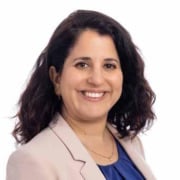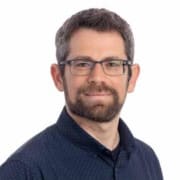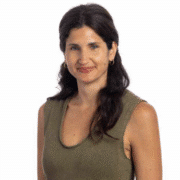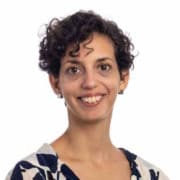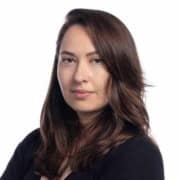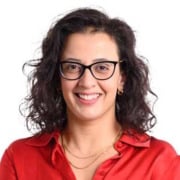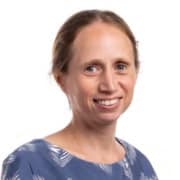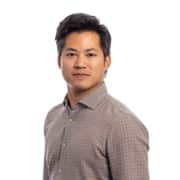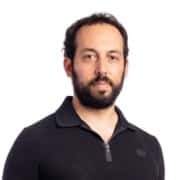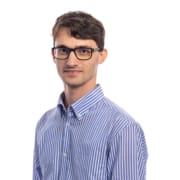Dr. Reut Naim is a new faculty member in the School of Psychological Sciences at Tel Aviv University. In her work, she uses clinical neuroscience and naturalistic research methods to study deep phenotyping of externalizing problems and disruptive behaviours while advancing mechanism-informed treatments to reduce these symptoms and distress in youth.
Reut’s research focuses on leveraging technology to investigate mechanisms of risk for externalizing psychopathology and to develop, evaluate, and implement interventions for large-scale dissemination to improve public health.
As an Azrieli Fellow, Reut will investigate the dynamics between inhibitory control, physiological arousal, and aggressive behaviours as they occur in the real world. Her aim is to explore temporal patterns and predict the likelihood of aggressive behaviour manifestation in the context of increased arousal and impaired inhibition.
Reut is a researcher and a certified clinical psychologist. She received her BA and MA from the School of Psychological Sciences at Tel Aviv University (summa cum laude), where she also earned her PhD in clinical psychology in the lab of anxiety and trauma. She completed a clinical psychology internship at Tel Aviv Sourasky Medical Center’s psychiatric clinic. Reut received an intramural research fellowship award from the National Institute of Mental Health (NIMH), where she completed her postdoctoral research in the Neuroscience and Novel Therapeutics Unit, studying mood dysregulation in youth. She lives in Herzliya with her partner, Noam, and their three children and enjoys hiking, going to concerts, practicing yoga, and spending time with friends and family.
